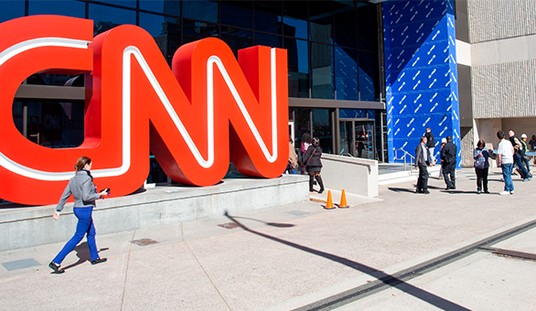
Image via George Papadopoulos’s LinkedIn account
There are three conditions the FBI must satisfy when submitting an application to the FISA Court to secure a warrant to spy on a US citizen.
First, the evidence presented as the basis for the warrant must have come from intelligence sources deemed reliable and it must be verified. We’ve already learned from DOJ official Bruce Ohr’s testimony before Congress that the Steele dossier was neither of those. He told lawmakers that on July 30, 2016 when he delivered the dossier to Andrew McCabe and Lisa Page, he emphasized the fact that none of the allegations had been verified. To this day, after nearly three years of scrutiny by the FBI, the Mueller team, journalists and politicians, it remains unverified.
“Second, it must disclose any information that calls into question the credibility of its sources.” Ohr also said he told McCabe and Page that the dossier was opposition research paid for by the DNC and the Hillary Clinton campaign. Also, he told them that Christopher Steele, the author of the dossier, hated Donald Trump and was “desperate” that he not be elected.
Third, the FBI must “disclose any evidence suggesting the innocence of its investigative targets.”
The Hill’s John Solomon has followed this story closely and reported that according to “more than two dozen sources, many of whom “had access to the FBI’s evidence,” the FBI failed to provide the FISA Court with exculpatory evidence. Solomon wrote:
What remains uncertain in the court of public opinion is whether the FBI possessed evidence suggesting Papadopoulos and Page — and, thus, the larger Trump campaign — were innocent of collusion. Republican lawmakers have suggested for months that such evidence existed and was hidden from the courts, but none has emerged in public.
Stefan Halper, the London professor, worked for the FBI as a confidential human source. It was said “Halper received over $1 million in contracts from the Pentagon during the Obama years, however nearly half of that coincided with the 2016 US election.” If I recall correctly, Halper was paid approximately $430,000 for his “work” with the Trump campaign.
One of the allegations made in the dossier was that, during a trip to Moscow, Carter Page “might have coordinated Russia’s election efforts with the Trump campaign.” Halper invited former Trump campaign advisor Carter Page to visit him at his farm in northern Virginia in September 2016.
Page met Halper weeks earlier when invited by Halper’s assistant to a Cambridge academic conference. The two corresponded by email around the time of Page’s trip to Moscow and arranged to meet in Virginia.
By the time Page arrived at Halper’s farm, he had been rattled by media calls during the prior week in which reporters alleged having information that Page met with two senior Russian intelligence figures in Moscow. The reporters suggested his trip might have been part of a larger plot to coordinate with Russia to benefit Trump’s election as president.
During his visit with Halper, Page, who to this day has not been charged with any wrongdoing, told him he was completely innocent. He said he had not met with any Russians and that he had no knowledge that the Trump campaign was collaborating with Russians to win the election. Page told Solomon:
I’m certain that nothing I said that day at the professor’s farm could be deemed as anything other than exculpatory. And once again, in September, I explained reality to the FBI. Contrary to the DNC’s false reports, I have never met those Russians, and I did not know of any effort to coordinate, collude or conspire with Russia. Period.
Solomon reported:
Page said he went to Moscow in July 2016 simply to give a speech, at the same university where former President Obama spoke a few years earlier. And he said he consciously did not take any actions with Russians that might raise concerns, especially after helping U.S. prosecutors and the FBI in an earlier Russian criminal case and meeting with federal authorities as recently as the previous March.
“I’ve never done anything even vaguely resembling illegality throughout the countless trips to Russia. But I was exceptionally meticulous that trip to carefully avoid anything that could be remotely construed as questionable,” he told me.
Page’s recollection is backed up by a letter he sent to then-FBI Director James Comey a few weeks after his Halper meeting. “For the record, I have not met this year with any sanctioned official in Russia, despite the fact that there are no restrictions on U.S. persons speaking with such individuals,” he wrote in September 2016.
According to Solomon’s sources, no mention of Page’s claims of innocence were included in the FBI’s original October 2016 FISA Court application or in any of the three renewals, as required. “If such statements exist, in the form of a tape or a transcript or an FBI interview report — three routine investigative tools the FBI uses when managing informers — then it would be a huge omission that likely violated FBI rules.”
George Papadopoulos, another Trump campaign advisor was also approached by Halper. Papadopoulos, you may recall, famously met with Australian diplomat Alexander Downer (Downer is said to have ties to Halper) in a London bar in May 2016 and allegedly told him that the Russian government had embarrassing information about then-candidate Hillary Clinton. The FBI claims that this incident prompted them to open their counterintelligence investigation, Operation Crossfire Hurricane, into Donald Trump on July 31, 2016.
In addition to Halper’s work for the FBI, he was a Cambridge University professor. Earlier in 2016, Halper offered Papadopoulos $3,000 to present a foreign policy paper in London. In early October 2016, he traveled to London. Papadopoulos told Solomon that “On the second day of his visit with Halper, Papadopoulos said the conversation turned from academic work to a barrage of questions about Russia, Trump and collusion, including whether the Trump campaign had conspired with Russia on the hacked Clinton emails or changed the GOP platform on Ukraine to appease Vladimir Putin.”
I made it clear to Halper that what he was suggesting did not only amount to treason, but that I had absolutely no idea what he was talking about and had no information at all about anyone involved with the campaign who might have been involved with a conspiracy because there never was a conspiracy and no one was colluding with a foreign power, especially Russia.
Furthermore, I made it clear to him that Ukraine should be supported and that Russia will always remain a competitor, even if Trump decided to work with Russia to stabilize Syria and East Ukraine while checking China’s rise.
Solomon’s sources have said there are no references in the FISA application of this either.
Papadopoulos was charged with making a false statement to the FBI and spent two weeks in prison.
The omissions from the FISA Court applications that both of these men had expressed their innocence to Halper, and that Page had written a letter to Comey, if true, represent a violation of FBI protocol.
It’s looking more and more as if the FBI’s FISA Court application for the warrant to spy on Page met none of the required conditions which would mean they obtained their warrant fraudulently.
And the “conspiracy” theory, that Democrats and the mainstream media tried to frame President Trump for collusion with Russia to win the presidency, is becoming more apparent as time goes on.
What is it they say about the fruit of the poisonous tree?













Join the conversation as a VIP Member